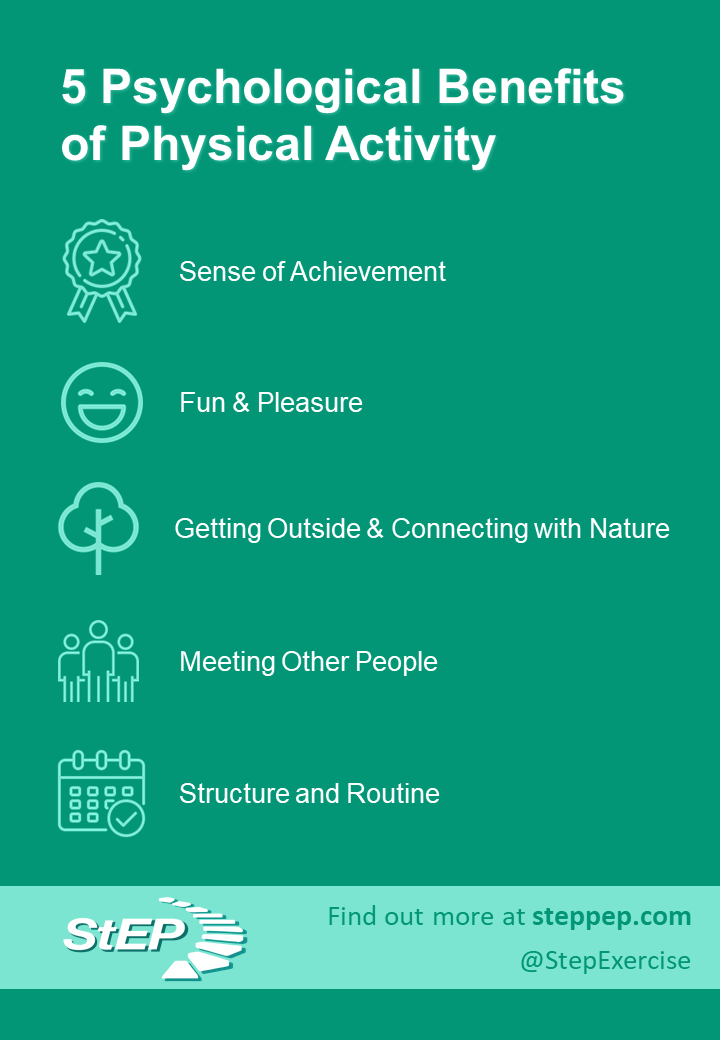How Physical Activity Improves Your Mental Health
Physical activity has been shown to have numerous benefits for mental health. Exercise can benefit mental health directly and indirectly, on a physical and psychological level.
Exercise is recommended to both prevent mental illness and to help those already diagnosed with mental illnesses, and mental health charities such as MIND encourage exercise due to the benefits it has on mental health.
Benefits:
- Exercise can block negative thoughts and distract from daily worries.
- Exercising with others allows you to socialise and interact with people.
- It can have a positive impact in your mood and can improve sleeping habits.
- Exercise can also increase levels of chemicals in your brain, such as serotonin, endorphins and decrease stress hormones. This will often make you feel better.
- Exercise has been shown to have a positive impact on your self-esteem. Especially when you set yourself goals and meet them.
- Exercise has shown to help delay the decline in cognitive function in older people with illnesses such as dementia.
- It can reduce the risk of depression, or act as an antidepressant for those with depression and anxiety.
- Exercise has also been shown to help those with ADHD, and those diagnosed with PTSD or who are suffering from other traumas.
Please see HelpGuide’s article for more information on the benefits of exercise for depression, anxiety, stress, ADHD, and PTSD and trauma.







Leave A Comment